How to Begin Your Self-Discovery Journey: 16 Best Questions
 Whether spurred by a milestone birthday, life upheaval, or simply curiosity, many of us will at some point set out on a quest for greater self-knowledge.
Whether spurred by a milestone birthday, life upheaval, or simply curiosity, many of us will at some point set out on a quest for greater self-knowledge.
As part of this process, we must not only search to determine what constitutes our true selves, but let go of objects of identification we’ve long mistaken for ourselves, requiring a balance of introspection and new experiences.
So let’s set sail.
In this article, we’ll give you a range of powerful questions to help you along your journey of self-discovery and point you toward further reading and resources.
Before you continue, you might like to download our three Meaning and Valued Living Exercises for free. These creative, science-based exercises will help you learn more about your values, motivations, and goals and will give you the tools to inspire a sense of meaning in the lives of your clients, students, or employees.
This Article Contains:
- What Is Self-Discovery According to Psychology?
- Fostering Self-Discovery Skills: 10 Examples & Tips
- Why Is the Process Important?
- A Look at Self-Discovery Coaching
- 3 Exercises, Games, and Activities for Adults
- Best Worksheets and Journal Prompts
- 16 Questions to Ask Yourself or Your Clients
- Helpful Books & Apps for Your Journey
- Tools From PositivePsychology.com
- A Take-Home Message
- References
What Is Self-Discovery According to Psychology?
Drawing often from the field of philosophy, psychologists point to the illumination of our daimon (or ‘true self’) as the ultimate goal of self-discovery.
Formally defined, this true self is
“the central inner force common to all human beings and yet unique to each, which is the deep source of growth… [that is] free, healthy development in accordance with the potentials of one’s generic and individual nature.”
Horney, 1950, p. 17
As part of the process of searching for our true selves, we are ultimately working to identify three things (Waterman, 2011):
- Personal potentials
- Our purposes for living
- Opportunities to act upon those potentials and purposes in living
The search for our true selves, therefore:
“refers to those processes, both intuitive and reasoned, by which those [personal, purpose-related] potentials are discovered and come to attain the status of personally concordant goals that are to be actualized.”
Waterman, 2011, p. 360
According to this view, a person’s true self essentially lies beneath the surface, and our task is to find, recognize, or understand that which already exists. Once you have, you can then make choices about your life and identity that are more consistent with this self-knowledge (Waterman, 2011).
Fostering Self-Discovery Skills: 10 Examples & Tips

Seek a supportive atmosphere
The more time we spend in the presence of supportive family, friends, lovers, and communities, the sooner we will be likely to discover our true nature. This is because warm and encouraging atmospheres facilitate feelings of inner security while providing the freedom to have our own feelings and thoughts (Horney, 1950).
To this end, here are some ideas to consider:
- Seek quiet spaces and time out to facilitate reflection or journaling.
- Join a social group whose interests and passions align with your own, such as a painting, writing, or poetry group.
- Find a coach or therapist for a safe space to pursue self-discovery.
- Set boundaries with people who discourage your individuality, negatively affect your emotions, or put you down.
- Seek the company of people who inspire you, make you feel positive, and challenge your perception of yourself.
Identify your drifts
Pay close attention to the things you naturally love doing, or drifts, particularly those that are personally expressive. By paying attention to the subconscious pull of these activities, you can allow them to guide you toward your true self, stemming from your genetic makeup, upbringing, and experiences (Pagedar, 2021).
- Our drifts tend to emerge when the mind is still, so try selecting a quiet day to do some meditation or practice some relaxation techniques.
- Try to notice activities that cause you to slip into the state of flow, as these often point us toward our drifts.
- Consider which activities you possess a natural aptitude or talent for, perhaps using a strengths-finding exercise.
- Think about which activities you find intrinsically motivating. These are the activities you would undertake in the absence of external rewards, such as money or the approval of others.
- Notice times when you feel a strong sense of personal responsibility to do something or have a unique vision about how something should be carried out.
Why Is the Process Important?
To understand why self-discovery is so important, we must consider the consequences of failing to identify our true selves.
According to Horney (1950), when a person experiences a large discrepancy between their lived and real selves, they are likely to experience a sense of alienation from themselves. This remains true even if the person is successful in their activities and receives external rewards.
Such a person may often notice themselves wondering, “Why am I doing this when it’s not who I really am?” The consequence is a feeling of guilt or dissatisfaction if we fail to live up to an idealized version of ourselves that we cannot be.
Besides this negative emotional toll, the problem with pursuing such an ideal is that it will be rooted in externally derived standards of worth.
To illustrate, here are some examples:
- A student feels pressure from their parents to pursue a prestigious career in law, even though this line of work does not inspire them.
- A famous musician has mistaken their true self with their like of the status, prestige, and social validation they receive while performing.
- A woman’s family talks her into finding a husband and settling down when she’d rather travel the world with her friends.
- A son feels obligated to take over the family business when he’d prefer to start his own venture.
When we cannot live in alignment with our true selves, we must spend energy attempting to deny and distort our experiences to make sense of a pervasive lack of happiness and personal fulfillment. This ongoing effort can go so far as to produce psychological states and conditions such as depression (Waterman et al., 2010).
This is why self-discovery is so important.
Our goal in life should not be to pursue imagined or externally derived ideals, but rather to develop a more realistic understanding of our strengths and limitations. By doing so, we can avoid negative psychological states and self-actualize, feel contentment, and make better contributions to the world.
A Look at Self-Discovery Coaching

A growing trend in coaching, self-discovery coaching is about looking beyond specific goal pursuits (e.g., “I want to improve my self-esteem”) to discover how we can live authentically and be truly happy.
Self-discovery coaching has many components, including (Elevate Life Project, n.d.):
- Exploring your values to live in congruence with what’s most important to you
- Discovering grounded confidence, centeredness, and strength
- Identifying your abilities for making easier decisions
The role of a self-discovery coach in this process is to act as co-pilot on a client’s journey toward authentic fulfillment by challenging them, imbuing them with courage, and showing compassion.
3 Exercises, Games, and Activities for Adults
If you or your clients are looking to set off on a self-discovery journey, consider the following fun and insightful activities to get you started.
Who Am I?
This exercise is a useful starting point for viewing yourself clearly in terms of values, beliefs, and more. The exercise guides users through a two-step process of considering themselves from the perspective of others, followed by a consideration of their self-perceptions at different times in their life.
Spontaneous collage
Collage is a fun and cathartic method of self-discovery that helps people bypass the socially protective aspects of the mind and reveal aspects of their authentic self. Best of all, no previous art experience is required.
For a great resource, check out Shelley Klammer’s 12-week online course and check out the #collageforselfdiscovery hashtag on Instagram to get inspired by others’ collages.
Kokology: The Game of Self-Discovery
Created by famous Japanese psychologists Tadahiko Nagao and Isamu Saito, kokology, the study of kokoro (“mind” or “spirit” in Japanese), is a fun and sometimes hilarious game for learning about yourself.
The game invites players to answer questions about seemingly innocent topics, such as the color of an imaginary bird that has flown in their window, to reveal profound insights in their answers.
Best Worksheets and Journal Prompts

Journaling and worksheets can both be hugely helpful for this purpose.
To help, look at some of the following free resources from our site:
- Self-Awareness Worksheet for Adults
This worksheet poses a series of 15 questions to help you discover more about your true self. Specifically, the questions tap into topics such as your talents/strengths, values, and barriers to living more authentically. - What Are My Qualities and Traits?
This worksheet invites you to identify your top five and weakest two qualities from a list of 100 strengths. It then invites you to consider how you might shape, develop, and use your toolkit of identified strengths to better your life. - Reflecting on Three Things
This worksheet invites you to explore what defines who you are. These reflections can include statements, objects, roles in life, people you admire, and ambitions.
If you’re more into journaling, see if any of the following prompts might inspire some of your upcoming entries (Hollis, 2019):
- What things have you been doing lately that may be positively or negatively affecting your mental health?
- What ways can you touch or move your body that makes you feel good?
- If you could spend the day doing anything, what would you do?
- How do you show love to other people?
- What are some things about you that you wish other people knew?
How to discover your authentic self – at any age – Bevy Smith
16 Questions to Ask Yourself or Your Clients
For more ways to get started on your journey of self-inquiry, consider the following questions, drawn from leading books designed to guide you toward self-discovery (see Helpful Books & Apps for Your Journey):
Mindful self-discovery questions
- What’s going on inside your body at the moment (e.g., sensations, flows of energy)?
- Is there joy, ease, and lightness in what you are doing at the present moment?
- Do you really have any problems right now in this present moment?
- Is there anything you can do to change, improve, or remove yourself from a present dissatisfactory situation? If not, how can you move toward accepting your present circumstances?
Exploring values
- What are your top five personal and professional values?
- How are you living outside your values?
- In what areas do you feel a personal sense of responsibility to better the world?
- How are you living outside of your integrity?
Questions about fear and courage
- What do you fear the most?
- What fears have actually come true in your life?
- What would happen if you treated the actions you fear as an experiment?
- For which pending decision could you use 10% more courage?
Considering worthwhile experiences
- What has made your childhood worthwhile?
- What lessons did you learn last week?
- What makes life worthwhile for you?
- What trip have you always wanted to take, and how could you make this trip happen?
More questions for self-discovery
For even more powerful coaching questions, be sure to check out some of the dedicated articles throughout our blog:
- 73 Powerful Coaching Questions to Ask Your Clients
- 100 Most Powerful Life Coaching Questions [+PDF]
- Self-Coaching Model Explained: 56 Questions & Techniques for Self-Mastery
Helpful Books & Apps for Your Journey
Here are some of our favorite books and apps to support greater self-insight and discovery.
1. The Power of Now: A Guide to Spiritual Enlightenment – Eckhart Tolle
A critical first step toward greater self-insight involves ceasing to confuse your true self with the endless stream of thoughts flowing through your mind.
The bestselling book The Power of Now takes readers on a journey to find their deepest self through the lens of mindfulness and spirituality.
The book guides the reader through steps to help recognize and free themselves from ego in the form of defense mechanisms, automatic negative habits, and over-identification with thought. From here, readers can then discover their true nature and lasting contentment, rooted in the present moment.
Find the book on Amazon.
2. Self-Discovery Questions: 155 Breakthrough Questions to Accelerate Massive Action – Barrie Davenport
Not all of us have the resources to employ a self-discovery coach, making it all the more important to know what questions to ask on your self-discovery journey.
Barrie Davenport’s book of 155 powerful questions is a perfect companion for self-reflection and journaling, helping readers become less reactive and take charge of their lives and destiny.
Once you become acquainted with your answers, you can strengthen self-awareness, break out of automatic patterns, and feel empowered to make positive new life changes.
Find the book on Amazon.
3. The 365 Self-Discovery Journal: One Year of Reflection & Development – Created by 21 Exercises
Journaling remains one of the best ways to pursue self-discovery and greater self-insight (Charles, 2010).
This book provides journal lovers with a year’s worth of challenging and original questions to guide self-discovery.
By combining each prompt with thought-provoking poems and quotes, this book is an excellent tool to help steadily expand the reader’s comfort zone and curiosity across domains ranging from career and finances to love and relationships.
Find the book on Amazon.
4. The Quenza app
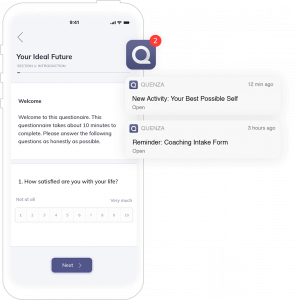
Quenza was designed by our very own team as a one-stop resource for coaches and psychologists wishing to remotely support their clients’ self-inquiry between scheduled sessions.
The app links with an online dashboard and growing library of science-backed activities you can customize and send directly to your clients’ smart devices, including audio meditations, guided visualizations, and many thought-provoking reflections.
Try the app, platform, and entire library of pre-built activities for 30 days for just $1.
5. The Waking Up app
While Western takes on meditation tend to emphasize health and stress reduction, there is much more we can discover about ourselves through this powerful practice.
Waking Up, developed by philosopher and neuroscientist Sam Harris, features a rich array of audio-based meditations, exercises, and conversations with leading experts and teachers to help you make profound discoveries about the nature of your own mind.
This app is a top-rated resource for those seeking to dismantle illusions of the self and rediscover their true nature and purpose.
6. The Reflectly app
With the growing recognition of journaling as a tool for self-insight, new technologies are emerging to support this powerful practice.
Reflectly is a modern journaling app for self-care and greater happiness. Drawing on evidence-based approaches from positive psychology, mindfulness, and Cognitive-Behavioral Therapy, this app serves as an AI companion to help you manage negative thoughts and find greater happiness.
Among its personalized functions, the app includes daily quotes, a mood tracker, and personalized insights via its reporting features.
Tools From PositivePsychology.com
Throughout this post, we’ve discussed the importance of clarifying values to better understand what brings meaning throughout one’s journey of self-discovery. To this end, we invite you to check out our free Meaning & Valued Living Exercises Pack.
This pack features three of our top tools from the Positive Psychology Toolkit©, all of which center on the theme of values-based living:
- The Top 5 Values
This exercise draws on key principles of Acceptance and Commitment Therapy to help clients begin brainstorming their values. Following this, clients will then prioritize these values in a list to identify those most central to who they are. - Self-Eulogy
This exercise invites clients to consider how they’d like to be remembered at their funeral as a means to identify and clarify values. Based on this, they can then consider how well they are living in alignment with these values. - The Scoreboard Metaphor
This exercise helps clients recognize how to enact their values through goal-setting. In particular, it draws on the metaphor of a basketball game to illustrate how living into one’s values is an ongoing process and that the paths by which we pursue our goals are opportunities to enact our values in daily life.
You can access all three exercises for free by downloading our Meaning & Valued Living Exercises Pack.
If you’re looking for more science-based ways to help others discover meaning, this collection contains 17 validated meaning tools for practitioners. Use them to help others choose directions for their lives in alignment with what is truly important to them.
A Take-Home Message
Self-discovery is an ongoing process of stripping away that which is unimportant, reviewing our core values, and seeking to live in greater alignment with these inner truths.
Importantly, anyone can take steps toward greater self-knowledge. All that’s required is an attitude of curiosity and regular time out for meditation, reflection, or self-questioning.
We hope this article has left you feeling equipped for your journey of self-discovery, and if you decide to try out any of the tools or exercises we’ve explored, be sure to let us know in the comments.
We’d love to hear from you.
We hope you enjoyed reading this article. Don’t forget to download our three Meaning and Valued Living Exercises for free.
- 21 Exercises. (2018). The 365 self-discovery journal: One year of reflection & development. Author.
- Charles, J. P. (2010). Journaling: Creating space for “I”. Creative Nursing, 16(4), 180–184.
- Davenport, B. (2015). Self-discovery questions: 155 Breakthrough questions to accelerate massive action. Bold Living Press.
- Elevate Life Project. (n.d.). Self discovery coaching. Retrieved October 11, 2021 from https://elevatelifeproject.com/self-discovery-coaching/
- Hollis, B. (2019, July 16). Who am I? Journaling prompts for self-discovery and self-reflection. Learning to Be Free. Retrieved October 11, 2021 from https://www.learningtobefree.com/2019/07/16/journaling-prompts-for-self-discovery/
- Horney, K. (1950). Neurosis and human growth: The struggle toward self-realization. Norton.
- Pagedar, A. (2021). Finding awareness: The journey of self-discovery. Author.
- Tolle, E. (2004). The power of now: A guide to spiritual enlightenment. New World Library.
- Waterman, A. S. (2011). Eudaimonic identity theory: Identity as self-discovery. In S. Schwartz, K. Luyckx, & V. Vignoles (Eds.), Handbook of identity theory and research (pp. 357–379). Springer.
- Waterman, A. S., Schwartz, S. J., Zamboanga, B. L., Ravert, R. D., Williams, M. K., Bede Agocha, V., … Brent Donnellan, M. (2010). The Questionnaire for Eudaimonic Well-Being: Psychometric properties, demographic comparisons, and evidence of validity. The Journal of Positive Psychology, 5(1), 41–61.
Let us know your thoughts
Read other articles by their category
- Body & Brain (50)
- Coaching & Application (57)
- Compassion (26)
- Counseling (51)
- Emotional Intelligence (24)
- Gratitude (18)
- Grief & Bereavement (21)
- Happiness & SWB (40)
- Meaning & Values (26)
- Meditation (20)
- Mindfulness (45)
- Motivation & Goals (45)
- Optimism & Mindset (34)
- Positive CBT (29)
- Positive Communication (20)
- Positive Education (47)
- Positive Emotions (33)
- Positive Leadership (18)
- Positive Parenting (4)
- Positive Psychology (33)
- Positive Workplace (37)
- Productivity (17)
- Relationships (46)
- Resilience & Coping (38)
- Self Awareness (21)
- Self Esteem (38)
- Strengths & Virtues (32)
- Stress & Burnout Prevention (34)
- Theory & Books (46)
- Therapy Exercises (37)
- Types of Therapy (64)

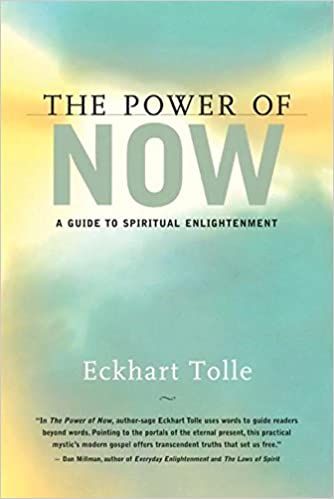
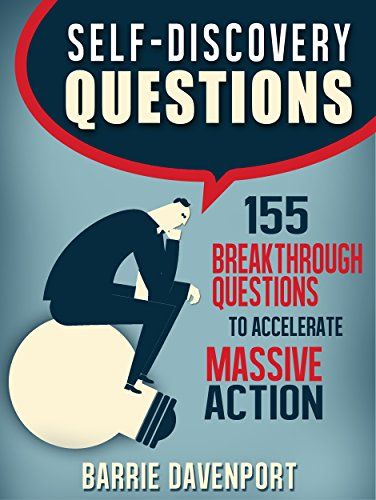
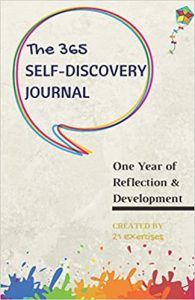
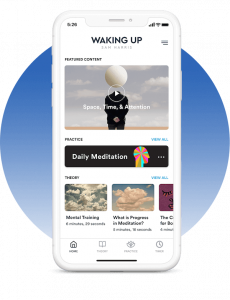

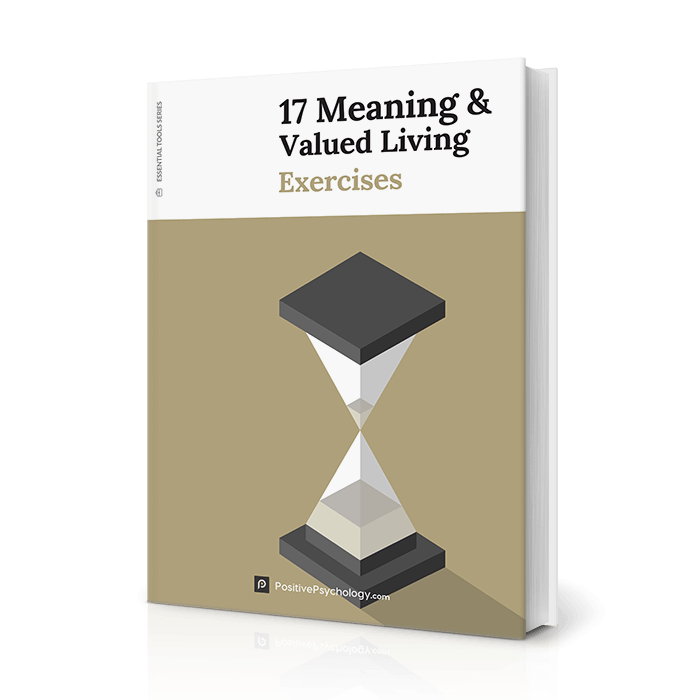


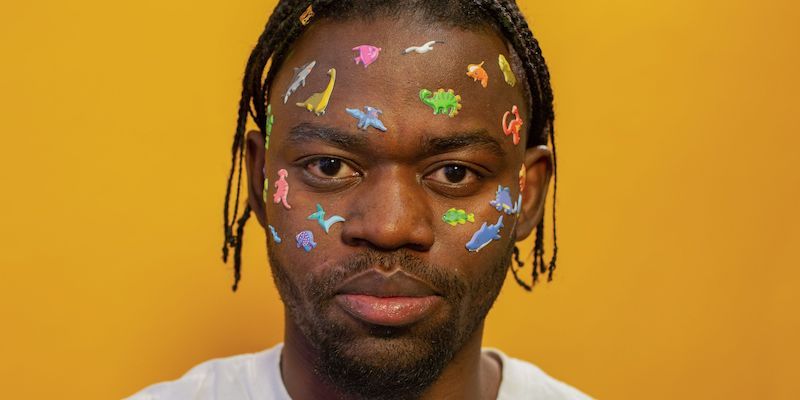
What our readers think
This is a great article for self-discovery, I recommend it to all, it’s a must read for the young minds.
Thanks to a great counselor. I appreciate your encouragement and efforts that have served as an eyes opener to self discovery and other resources that is helpful.
You have some great resources listed here in this article. Thanks for the great read! -Ryan
Appreciated, Nicole, for insight well done to start kicking where need be. Keep up te good work!
Thanks Nicole. I will explore some of the resources which sounds great. I work with medical students, some of whom are at the very beginning of learning reflective approaches to enhance their self knowledge. The challenge is always to find a variety of ways to promote engagement. You have given me some helpful ideas.
Thank You Dr, Nicole.
I have left you a message on LinkedIn.
Thank you so much for this wonderful article. Very useful and helps in the journey of self awareness and so helpful to the therapist and counselors who are using these resources to support clients. Heartfelt thanks and gratitude for all the resources that benefit the clients and counselors who otherwise would not be able to access such great quality articles and resources. Thank you. As a counselor who is doing a lot of free counseling these resources and articles are so helpful, cause I cannot afford them otherwise. Thanks for supporting the counselors and therapist and clients who ultimately benefit.
Thanks, Nicole … you shared a very interesting set of perspective.